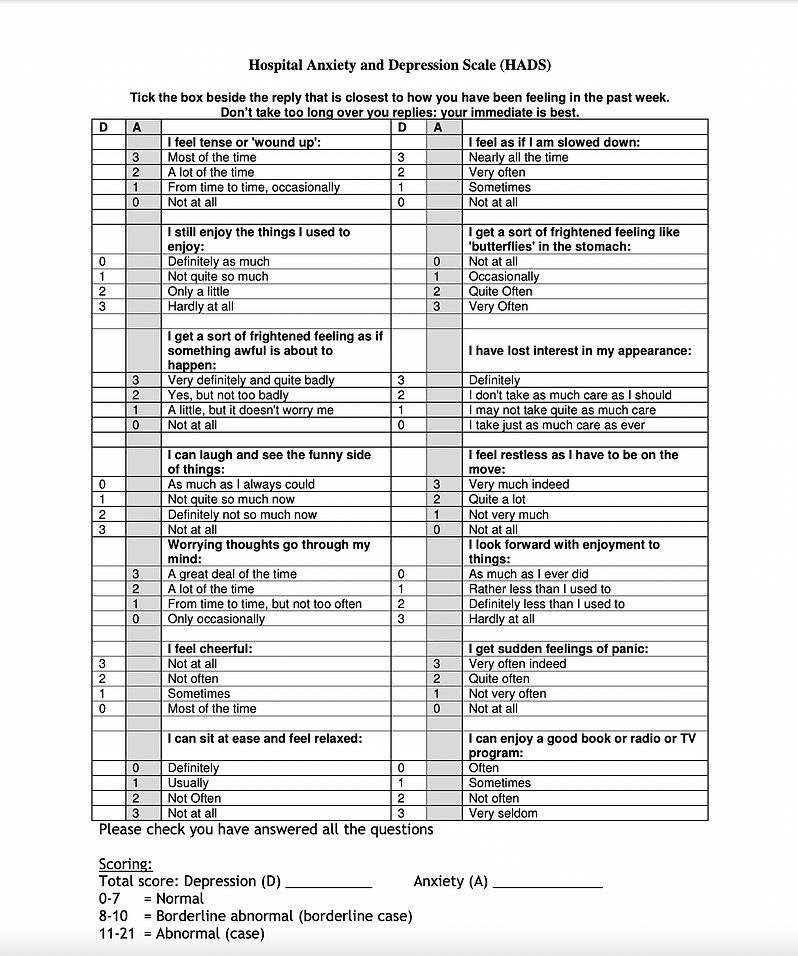
Screening Tools
Part of the psychosocial assessment completed by an oncology social worker should include a distress screening. A distress screening is a quick and measurable tool to see how a patient is coping with their diagnosis and exactly what stressors they are experiencing. One of the benefits of these tools is that they can be implemented at any time by a social worker to evaluate how a patient is coping during their treatment process. A screening should be done during the psychosocial assessment process and at other pivotal moments, such as when new test or scan results are given to the patient or a new type of treatment starts.
Below, the Distress Thermometer and the Hospital Anxiety and Depression Scale (HADS) are reviewed.
Distress Thermometer
The National Comprehensive Cancer Network (NCCN) created a Distress Thermometer to assist with gauging an oncology patient's distress levels before, during, or after treatment. An oncology social worker typically implements the Distress Thermometer by asking a patient to rate their level of distress on a scale of 1 to 10. If a patient rates their distress a score of 4 or higher, further exploration and social work interventions are needed based on specifically what a patient reports as causing them distress. The screening tool also allows for patients to report items from the "Problem List" so an oncology social worker knows exactly what things need to be addressed with the patient.
This distress screening is mandatory for cancer centers with accreditation by the American College of Surgeons' Commission on Cancer (CoC), meaning the cancer center staff must implement the screening tool with patients in order to maintain their accreditation.

Hospital Anxiety and Depression Scale (HADS)
The Hospital Anxiety and Depression Scale (HADS) was developed by psychiatrists Dr. Phillip Snaith and Dr. Anthony Zigmond to assess anxiety and depression patients with medical conditions may be experiencing. The tool combines questions to assess for both anxiety and depression and can be useful in determining if patients need further mental health interventions. HADS is a self-report questionnaire, meaning a patient is supposed to fill it out on their own based on how they are feeling.
The questions on the left column assess for depression and the questions on the right assess anxiety levels. A score of 0 to 7 is considered "normal", 8 to 10 "borderline", and 11 to 21 is "abnormal". Patients who score in the "borderline" range could benefit from closer monitoring and on-going emotional support, support group referrals, and check-ins. Those in the "abnormal" range could benefit from individual therapy referrals, frequent social work check-ins, support groups, and possibly psychiatric interventions.
